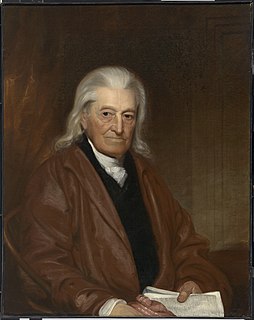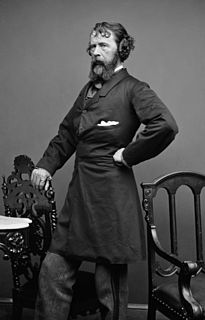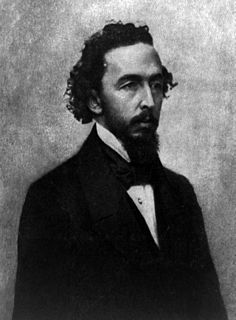A Quote by William Samuel Johnson
He knows not his own strength who hath not met adversity.
Related Quotes
God in His infinite wisdom knows exactly what adversity we need to grow more and more into the likeness of His Son. He not only knows what we need but when we need it and how best to bring it to pass in out lives. He is the perfect teacher or coach. His discipline is always exactly suited for our needs. He never overtrains by allowing too much adversity into our lives.
The power of magic has no known limits. A person knows, in a fair way, his own physical capacities, the weight of the blows he can deal, the furthest range of his arrows, the strength of his voice, the speed and endurance of his running; but the reaches of his mind are indefinite and, to his feeling, infinite.
Let us look upon a crucified Christ, the remedy of all our miseries. His cross hath procured a crown, his passion hath expiated our transgression. His death hath disarmed the law, his blood hath washed a believer's soul. This death is the destruction of our enemies, the spring of our happiness, and the eternal testimony of divine love.
The fact, however, to which I want to call attention is that the master of Judo never relies upon his own strength. He scarcely uses his own strength in the greatest emergency. Then what does he use? Simply the strength of his antagonist. The force of the enemy is the only means by which that enemy is overcome.
I have come to know that adversity really means the things in life that challenge us and cause us to work with devotion and courage to overcome. I once stood on a street in Trondheim, Norway, looking up at a statue of a Viking. There came to my mind at that time a fable of the Norsemen that when a man won a victory over another, the strength of the conquered went over into his veins. Therefore, in this sense adversity is good, for it produces in us a source of strength as we learn to conquer our weaknesses.

































